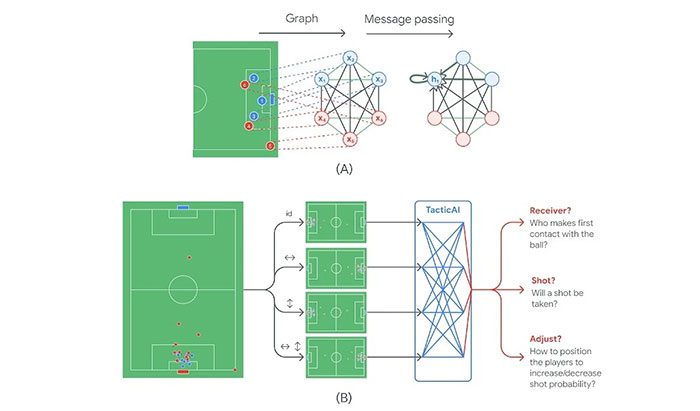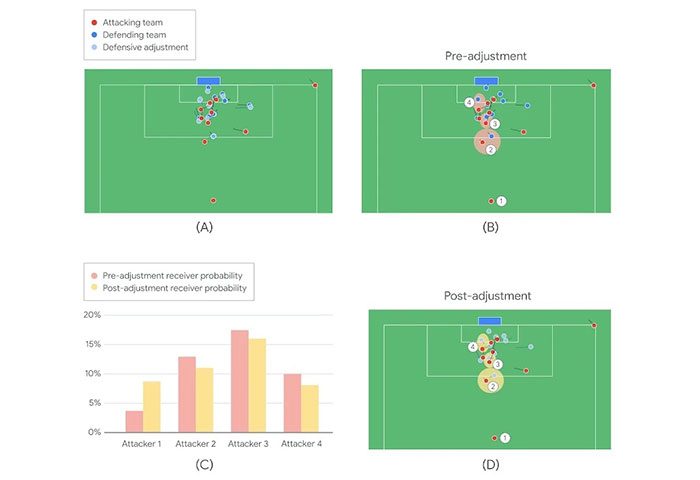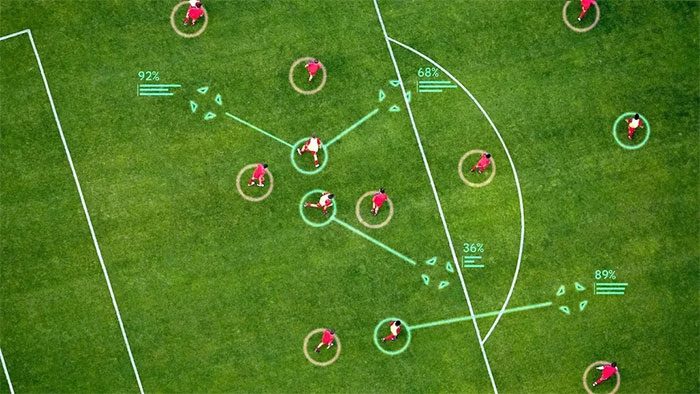TacticAI, the result of collaboration between DeepMind and Liverpool, provides a significant advantage over existing data analysis methods in corner kick situations.
In the second leg of the 2018-2019 Champions League semifinals, Liverpool trailed 3-0 from the first leg but managed to score three goals to level the match.
In the 79th minute, a moment of genius occurred when Liverpool was awarded a corner. Defender Trent Alexander-Arnold placed the ball, took three steps onto the field, then ran back and passed the ball to Divock Origi, who found himself with ample space between four Barcelona players. The fourth goal sealed Barcelona’s fate and sent Liverpool to the final.
Corner kicks in football are a potential source of goals. However, establishing an optimal routine for taking corner kicks relies on a combination of player intuition on the field and the match design from the coaching staff.
Nevertheless, Liverpool’s analytics team transformed what Trent Alexander-Arnold himself admitted was an instinctive goal into a product of calculation.
Unveiling the Secret
More than five years after Origi’s goal, details have begun to emerge. According to an article published in the journal Nature on March 19, DeepMind, a subsidiary of Google and one of the world’s leading artificial intelligence laboratories, officially announced TacticAI.
According to DeepMind, this is an artificial intelligence (AI) system that can provide experts with deep insights into tactics, especially regarding corner kicks, through the predictive and analytical capabilities of computers.

How TacticAI synthesizes and provides handling for a specific corner kick. (Photo: DeepMind).
DeepMind is already renowned for bringing AlphaFold software to dominate board games and states that models found in sports can also offer lessons on how to apply AI in other fields such as robotics and traffic coordination.
The DeepMind project is the result of three years of collaboration with Liverpool to implement AI in penalty situations and predict player movements.
Specifically, DeepMind’s latest model uses geometric deep learning technology on a dataset including 7,176 corner kicks from the Premier League from 2020 to 2023.
Analysis shows that corner kicks present significant opportunities for attacking teams. Together with other set pieces, such as free kicks, they account for about 30% of total goals scored.
TacticAI analyzed the outcomes from corner kicks with various player formations, using criteria such as who would receive the ball and whether they could shoot.
Then, this model proposed improvements in positioning as well as assessed their feasibility and usefulness in a case study with five specialists at Liverpool, including three data scientists, a video analysis expert, and an assistant coach.

The model can generate multiple corner kick scenarios, allowing coaches to test and propose countless different options. (Photo: DeepMind).
According to DeepMind researchers, experts couldn’t even distinguish AI-generated scenarios from real match situations, prioritizing TacticAI’s advice over 90% compared to existing strategies.
The article states that this indicates TacticAI can “easily provide useful, practical, and accurate recommendations.”
Exceptional Potential
TacticAI’s general model also allows coaches to redesign corner kick tactics to optimize the probability of certain outcomes, such as reducing the likelihood of a shot to set up defenses.
Additionally, this tool offers tactical recommendations to adjust the positioning of all players on a team.
From these proposed adjustments, strategists can quickly identify important patterns, as well as key factors determining the success or failure of tactics.
Data analysis has influenced baseball and professional basketball in recent years. It has also begun to impact football.
In football, scoring opportunities significantly affect match outcomes compared to other sports. The average number of goals in the Premier League is just under three goals per match, which is a specific example.
Liverpool is indeed one of the first major clubs to integrate data analysis into training practices.

Liverpool is a club that greatly benefits from effective AI analysis. (Photo: DeepMind).
“Liverpool is at the forefront of football data analysis”, Ignacio Palacios-Huerta, Director of Athletic Bilbao and a professor at the London School of Economics, stated in an interview with writer Simon Kuper.
At Liverpool, their analytics team is led by Ian Graham, who manages four members with PhDs spanning from astrophysics to advanced mathematics. More importantly, according to Palacios-Huerta, is that “they understand football.”
It is precisely Graham’s deep insights into algorithms, combined with data analysis in football, that have led to some of the smartest acquisitions in the Premier League.
According to Sudarshan Gopaladesikan, the director of football analytics at Serie A club Atalanta, projects like TacticAI are prime examples of how AI can evolve in this sport.





















































